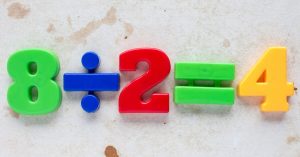Useful Home Early Learning Methods To Develop a Toddler’s Critical Thinking Skills

Critical thinking is essential to everyone. This skill is something every parent should teach their kids at an early stage. When kids have impressive critical thinking skills, they can seamlessly traverse their academic and professional journey. Thus, parents should be aware of the simple home early learning method to develop their child’s critical thinking skills. Early education online schools provide parents with enough learning materials to improve this ability.
With the constant evolution in the environment, kids must be critical thinkers even at a young age. Understanding the situation around them, analysing the information given to them, comparing the scenario, and contrasting the options available are some of the daily situations they may face. When they develop their critical thinking skills, dealing with these types of cases is effortless.
Constant Practice
A constructive way to educate a child to think critically is to engage them in regular exercises. Online teachers of early education follow a particular curriculum to engage their students to think critically. As parents, a simple home early learning method is to ask open-ended questions or apply cause-and-effect activities in their daily routine. In every conversation, they can insert questions or generate scenarios wherein their kids can exercise critical thinking. There may be theories that go with the learning materials which help create exercises for the kids. Otherwise, make every moment as a learning opportunity for the little ones.
Allow Them To Play While Learning
Allowing the kids to understand how things work informally helps develop their ability to think critically. With the home early learning method suggested by the school, some activities involve playing, such as the cause-and-effect scenario. What happens when the two marbles are rolled down the chute? How will I remove one block without falling the rest of it? These activities can practice their critical thinking skills. Integrating pretend play exercises are helpful home early learning methods. Kids learn faster with hands-on activities.
Give Them Enough Time To Think
Let the kids think and give them a chance to provide their answers before you intervene. In an online early education class, instructors don’t immediately answer the questions for the students. Toddlers are provided ample time to analyse, generate their answers, and present it to the teacher. Parents can time their children silently for about a minute before they guide them to the correct answer. By giving them this opportunity, they will eventually learn to think first instead of using their initial gut reaction.
Avoid Giving Answers Immediately
When they see their toddlers go through problems, parents’ typical reaction is to help and provide the answers. It will only hinder them from using their comprehension skills in a given situation. When their instructors provide home early learning materials to work on, let the toddlers go through the problems themselves and wait for them to ask for your help. Simply guide them on the instructions and process the questions until they can successfully fulfil the task. Young kids may require time when they’re trying to figure out how a toy or gadget works. Let them grasp and explore the item before demonstrating how to use them. Even if they seem frustrated, throw in questions to pacify but not solve the problem for them. This way, they are still practising their critical thinking abilities.








